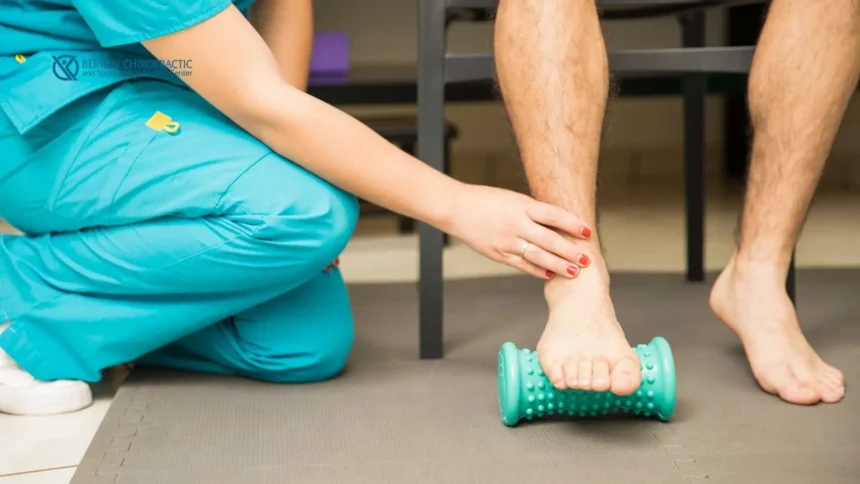Podiatrists are specialized healthcare professionals who focus on diagnosing and treating conditions related to the feet, ankles, and lower legs. Foot health affects your ability to walk, exercise, and perform daily activities comfortably. Understanding what podiatrists do and when to seek their care can help you maintain healthy feet throughout your life, and proper foot care can prevent common problems from developing.
What Is a Podiatrist?
A podiatrist is a medical professional who specializes in treating disorders of the foot, ankle, and related structures of the leg. These doctors are licensed to perform surgery, prescribe medications, and provide comprehensive foot care. Podiatrists diagnose conditions through physical examinations, imaging studies, and laboratory tests, and they develop treatment plans tailored to each patient’s specific needs. Their expertise covers biomechanics, wound care, sports medicine, and diabetic foot care.
What Services Do They Provide?
Podiatrists offer comprehensive diagnostic and treatment services for foot and ankle conditions. They perform routine foot examinations, nail care, and preventive treatments, and they also provide specialized services such as custom orthotics, wound care, and surgical procedures. Some podiatrists may also offer gait analysis to identify walking patterns that contribute to foot problems.
Treatment services include both conservative and surgical options. Podiatrists prescribe medications, perform injections, or recommend foot exercises, and they can also perform various minimally invasive surgical procedures. They work closely with patients to address systemic conditions that affect foot health.
What Conditions Do They Treat?
Podiatrists treat a wide range of foot and ankle conditions affecting patients of all ages. Common conditions include ingrown toenails, bunions, hammer toes, and heel pain, and they also manage more complex issues such as sports injuries. Skin conditions like corns and calluses also fall under their expertise.
Chronic conditions require ongoing management and specialized care. Podiatrists treat arthritis affecting the feet and ankles, nerve disorders, and circulation problems, and they provide specialized diabetic foot care to prevent complications. They also address biomechanical problems that can lead to pain and dysfunction throughout the lower extremities.
What Is Involved in Foot Health?
Foot health encompasses proper hygiene, appropriate footwear, and regular monitoring for changes or problems. Foot care includes thoroughly washing and drying feet, trimming nails properly, and inspecting feet for cuts, swelling, or other abnormalities. Preventive care plays a significant role in maintaining healthy feet throughout life. Regular podiatric examinations help identify potential problems before they become serious, and early intervention may lead to better outcomes.
How Does Posture Affect Health?
Posture directly influences foot health through its impact on weight distribution and biomechanical alignment. Poor posture can alter the way weight is distributed across the feet during standing and walking, and this can lead to increased pressure on certain areas of the feet. The alignment of the spine, hips, and legs affects how forces are transmitted through the feet during movement.
Foot problems also contribute to poor posture as the body compensates for pain or dysfunction. When feet hurt or don’t function properly, people may alter their walking patterns or posture to avoid discomfort, and these compensations can lead to problems in other parts of the body, including the knees, hips, and back. Addressing foot problems often helps improve overall posture and reduce pain throughout the musculoskeletal system.
Keep Your Feet Healthy
Maintaining healthy feet requires attention to daily care, appropriate footwear choices, and professional care when needed. Regular self-examinations help identify problems early, and seeking prompt treatment for foot pain can prevent minor issues from becoming chronic. Take action to protect your foot health by scheduling regular podiatric examinations.





